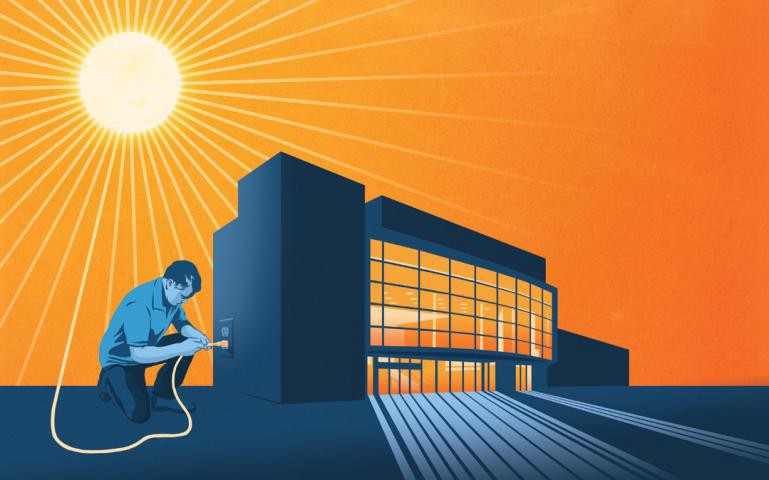Ever since President Trump announced plans to withdraw from the Paris climate agreement, city, state and business leaders have been tripping over themselves to show their support for — and intention to uphold — the international agreement on climate change mitigation. The latest case? The city of Santa Barbara, Calif., which just announced plans to switch to 100% renewable energy by 2030. Earlier this month, Portland, Ore. announced a similar commitment, with a 2050 target, rather than 2030.
“Cities are stepping up and re-committing to adopt, honor and uphold the Paris climate goals,” said Santa Barbara Mayor Helene Schneider. How Santa Barbara will reach 100% goal isn’t clear, but it’s already about 30% of the way there. Both Santa Barbara and Portland have joined nearly 300 cities in a pledge to uphold the Paris agreement. They’re among 90 cities committed to a 100% renewably-powered future (though 19 have given themselves until 2035 to get there).
The roster is not limited to liberal municipalities in coastal blue states. Pittsburgh, Pennsylvania, mentioned by Trump in his announcement, jumped on the Sierra Club’s 100% Clean Energy pledge after the White House’s announcement. The small town of Greensburg, Kansas, signed too. Its Republican mayor, Bob Dixson, was elected on a platform of sustainability and climate change mitigation after a 2007 tornado devastated the town. Columbia, S.C. Mayor Stephen Benjamin is co-chair of the 100% Clean Energy pledge. He’s a Democratic mayor in an overwhelmingly Republican state, as is fellow co-chair Jackie Biskupski, mayor of Salt Lake City, Utah. Benjamin says the city’s 1,000-year flood two years ago made it impossible for the city to ignore the signs of climate change. “We lost 19 people, hundreds of roads damaged, 45 dams destroyed, billions of dollars of damage here across our state,” Benjamin told CityLab.
“I tend to believe that most of the challenges we face are psychological,” Benjamin said. “There are certain things that we occasionally dismiss as just not possible, but more and more, I’m seeing people buy into the idea that we can be at the center of good, progressive policies that also strengthen our local economy, strengthen our businesses, strengthen our citizens.”











